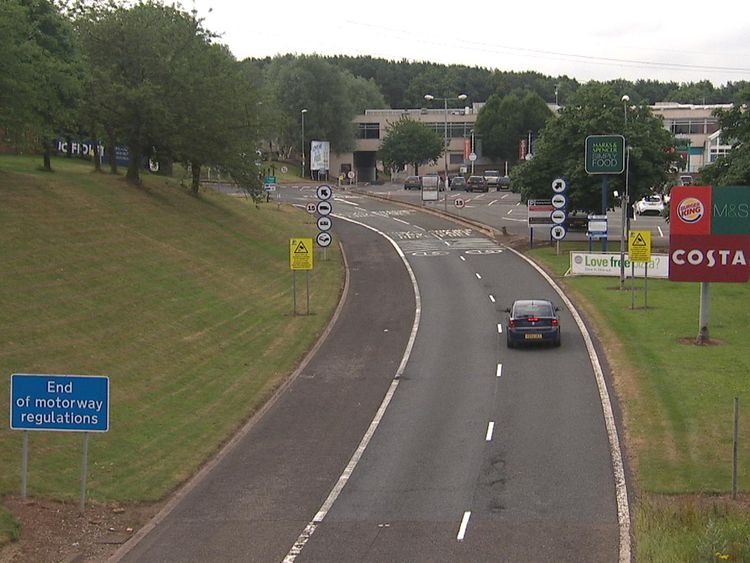A quarter of all road accidents are caused by drivers who have fallen asleep at the wheel, according to the AA Charitable Trust.
A survey of 20,000 motorists also found one in eight admitted falling asleep while driving, while 37% – said they had been so tired they were frightened they would drop off behind the wheel.
AA president Edmund King told Sky News: "If you close your eyes just for a couple of seconds, nodding off, you've actually covered the distance of more than a football pitch.
"If you close your eyes for 30 seconds you'll have gone more than half a mile, so it really is the hidden killer out there."
John Blackwell, 37, was a delivery driver from Derby on an overnight journey back home from Norwich 20 years ago when he decided to stop for an hour's sleep in a layby.
When he woke up, he jumped straight back in the driving seat.
"I literally just set off and all I was concentrating on was getting past the M1 before rush hour and getting home before 9am," he said.
"I'm presuming I just fell straight back asleep within seconds because I just don't really remember anything else.
"I just woke up with this bonnet crumpling towards me and I could just see a lorry front getting closer – I thought it was a dream to start with, but it wasn't unfortunately.
"I will always remember the smell of gunpowder from the airbag going off in my face."
Mr Blackwell's car spun 180 degrees, hitting a lamp post and a telegraph pole. He damaged three vertebrae in his spine and had to have physiotherapy.
Now, he is a certified driving instructor and says he has even cancelled lessons if his pupils are yawning and distracted.
"I will quite often tell them the story of what happened and they seem quite shocked. I don't think they realise the dangers with tiredness."

Sleep expert and chronobiologist Katharina Lederle said sleepiness impairs the prefrontal cortex, the area of our brain behind our forehead, which is needed for situational awareness, processing and making judgements.
"So when we're driving we're going to struggle to stay alert and focus and react – reaction time is a really big thing here, everything slows down," she said.
But falling asleep isn't an instant process and there are warning signs.
Ms Lederle said: "Yawning, blinking so your eyelids become heavy, your head becomes heavy and nodding. When we're driving that can also lead to swerving, changing lanes or hitting the rumble strip."
If you are getting the warning signs, the AA advises that the familiar tactics of turning up the radio or opening the window are not remedies – they are merely signs that you are too tired. They advise pulling over to the nearest services, drinking at least two cups of coffee or equivalent caffeinated drink, and having a 15-minute nap.
Mr King said people are more likely to drop off on long, monotonous motorway journeys, and there should be more service stations to allow them to take breaks.
The AA recommends a service station every 28 miles of motorway but there are some stretches where drivers have to slog more than 40 miles before taking a breather.
The AA has identified the M25 at Maple Cross in Hertfordshire, the M6 near Rugby in Warwickshire and the M1 near Skelton Lake in Yorkshire as the three areas of motorway that would most benefit from additional services.
Its research showed 17% of visitors felt tired when they arrived at a service station, but this fell to 11% on leaving.
Mr King said: "What we actually find, the times of day and night which are most dangerous for falling asleep at the wheel are around 2am and 2pm.
More from UK
"It's all to do with your sleep rhythms. A lot of people when they're going on holiday think it's a good idea to get up at midnight and drive to Devon and Cornwall or the Lake District at one o'clock in the morning.
"There might be less traffic but because of your sleep patterns, because of what you're normally used to, it's much easier to fall asleep at the wheel."
[contf]
[contfnew]

Sky News
[contfnewc]
[contfnewc]







